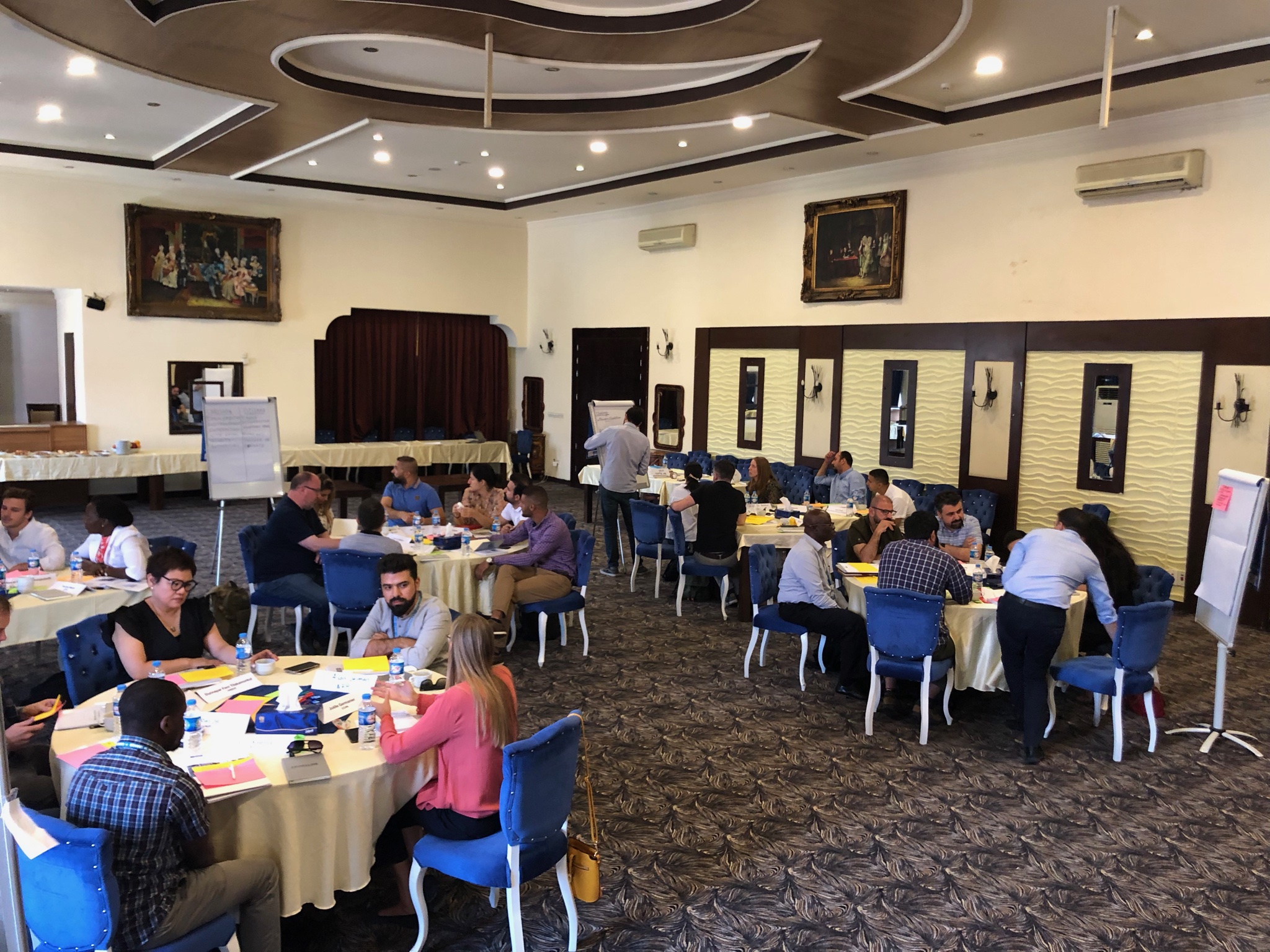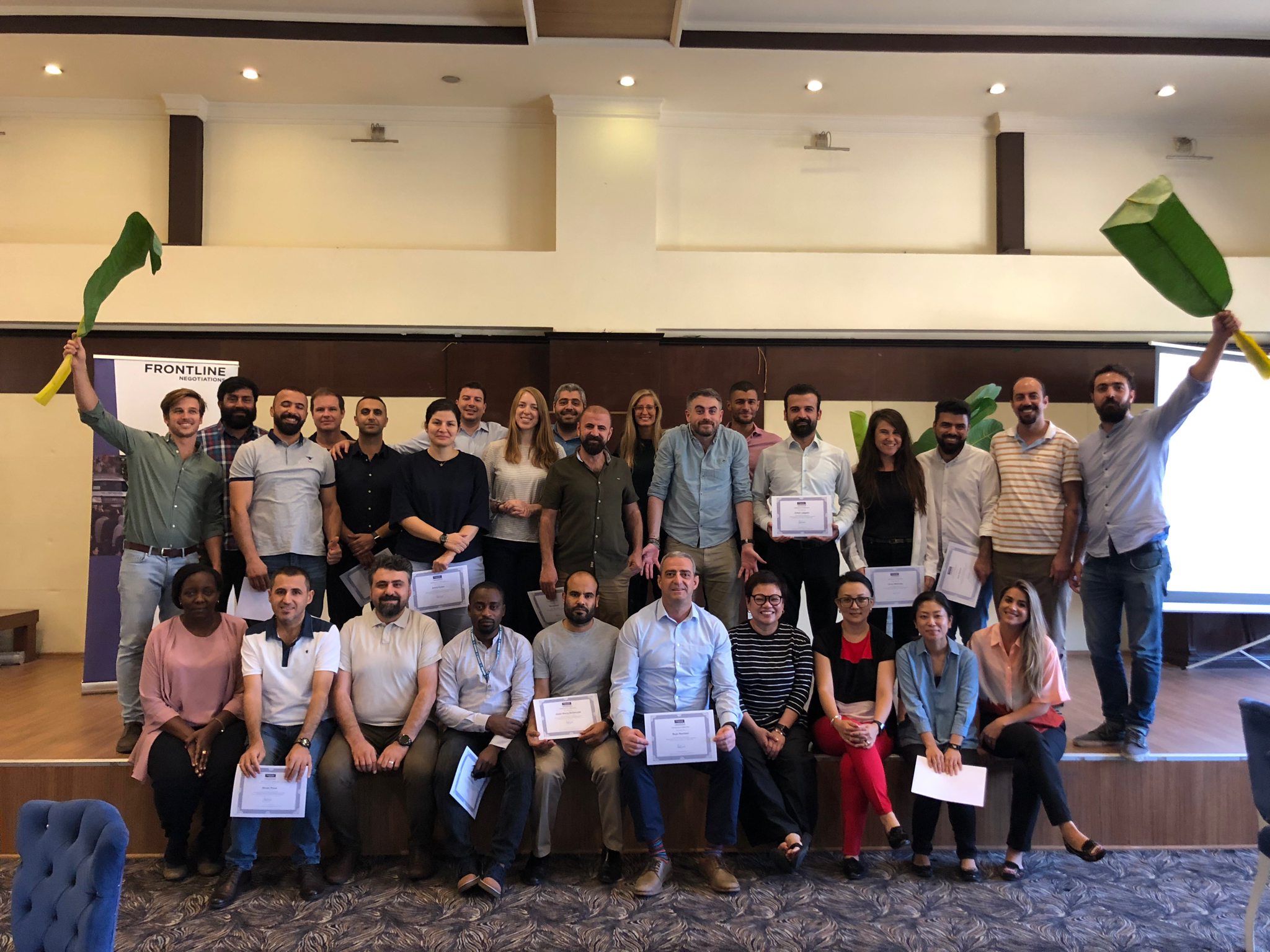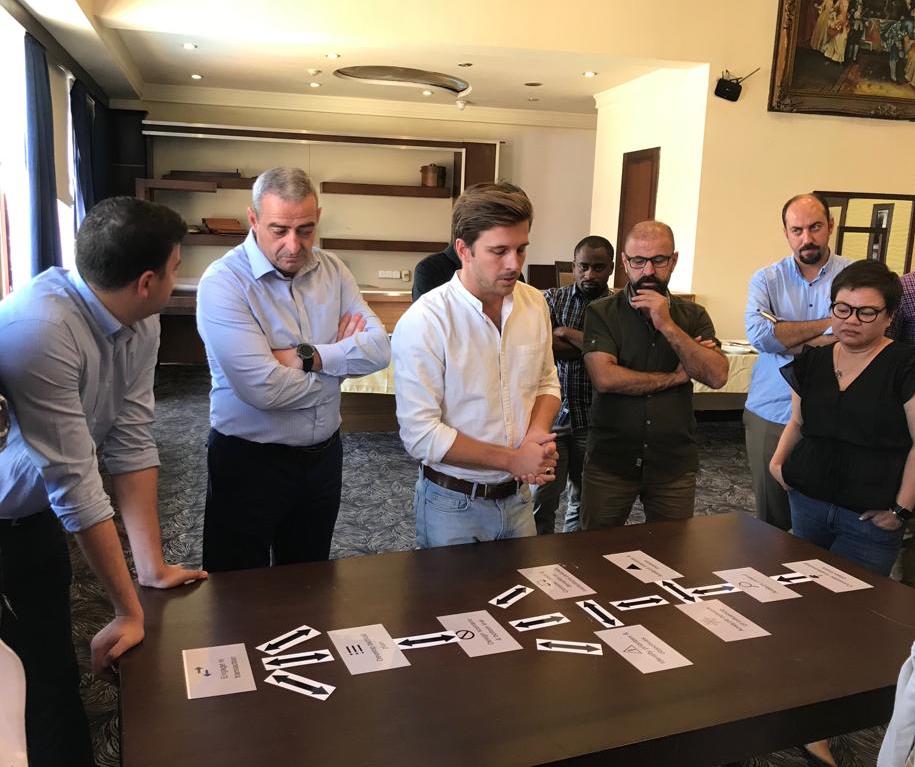
Protection challenges were at the heart of the peer discussions in Iraq. (Photo credit: Nikolas Rubiato/CCHN)
The CCHN held its first Peer Workshop on Humanitarian Negotiation in Dohuk, Iraq from 30 July to 1 August 2019. The workshop provided a unique opportunity for the exchange of negotiation experiences among field practitioners in Iraq.
The activity was designed in response to a request from UNHCR who had asked the CCHN to provide a peer-learning opportunity for field practitioners in Iraq.
Thanks to a good mix of national and international staff, there was a wealth of perspectives in the room. “I learned more from the people in this workshop than most other workshops I have attended before,” said Roger Al- Haddad, — Project Delegate at German Red Cross.
Nour Rady, an Associate Field Officer of UNHCR in Dohuk added: “This was the first peer workshop I have facilitated. I think the unique feature about this one was that all participants were humanitarian practitioners working in the same country. The quality of the exchanges was therefore very high”.
Nour had just completed the Training of Facilitators in Bangkok and took the opportunity to put his facilitation skills into practice in his duty station.

29 participants from various humanitarian organiaztions attended the workshop. (Photo credit: Nikolas Rubiato/CCHN)
Bringing protection challenges to the fore
In terms of content, protection negotiations were at the heart of the conversations. “Most humanitarian actors benefit from wide access [in Iraq] and are thus implementing very diverse programs, with a high component of protection work,” said Joëlle Germanier who was part of the facilitation team. “Most of the negotiation cases discussed were therefore linked to protection issues.”
Moreover, participants appreciated the interactive nature of the workshop. “[The workshop] went beyond my expectations! Very well organized, very interactive, amazing energy and a lot of opportunities to share real-life experiences!”, said Sybilla Kitsios who currently works as a Camp Officer for ACTED in Mosul, Iraq.

Participants discussed how the Naivasha Grid related to their daily work. (Photo credit: Nikolas Rubiato/CCHN)
A systematic method to plan negotiations
In terms of methodology, participants were keen to learn more about CCHN’s Naivasha Grid. “[The Naivasha Grid] laid the theoretical foundation of an ideal humanitarian negotiation process,” Kitsios said. For another participant, it showed the “different factors and parameters that simultaneously affect a negotiation process.”
Participants also learned about the Negotiation Iceberg model. The model helps identify the positions, interests and motives of a counterpart. “I’ll keep the image of the iceberg as a reminder of the hidden interests of the counterpart,” one participant said.
Looking ahead, participants expressed a strong interest in an additional workshop in Iraq to dive deeper into some of the topics. They are now also eligible for CCHN Specialized Sessions which deal with specific operational challenges. The next such session will be held in Dubai, UAE and will focus on the interface between risk management and humanitarian negotiation in field operations.
